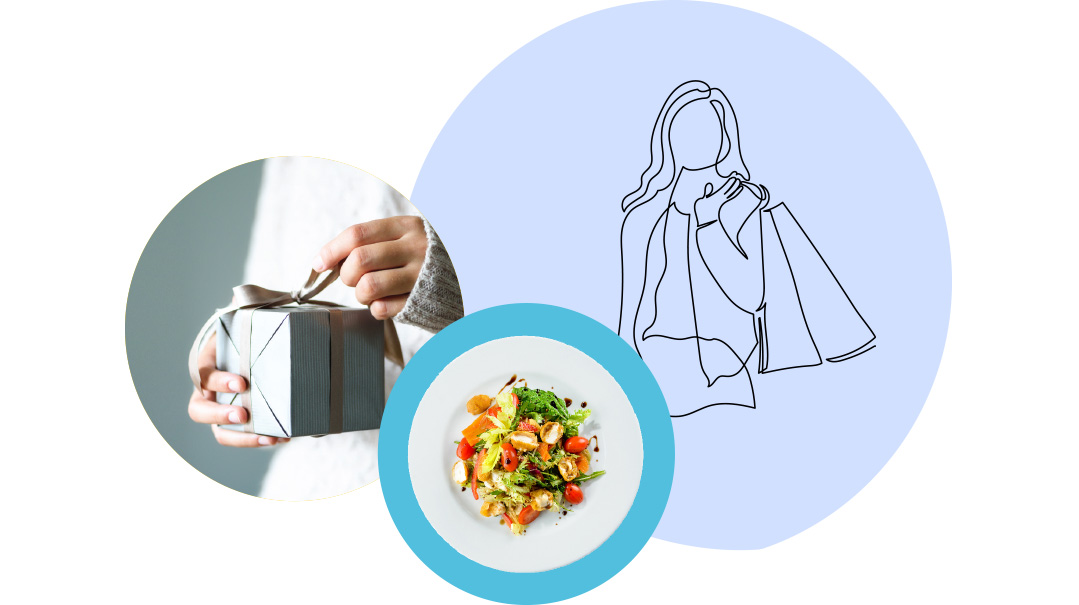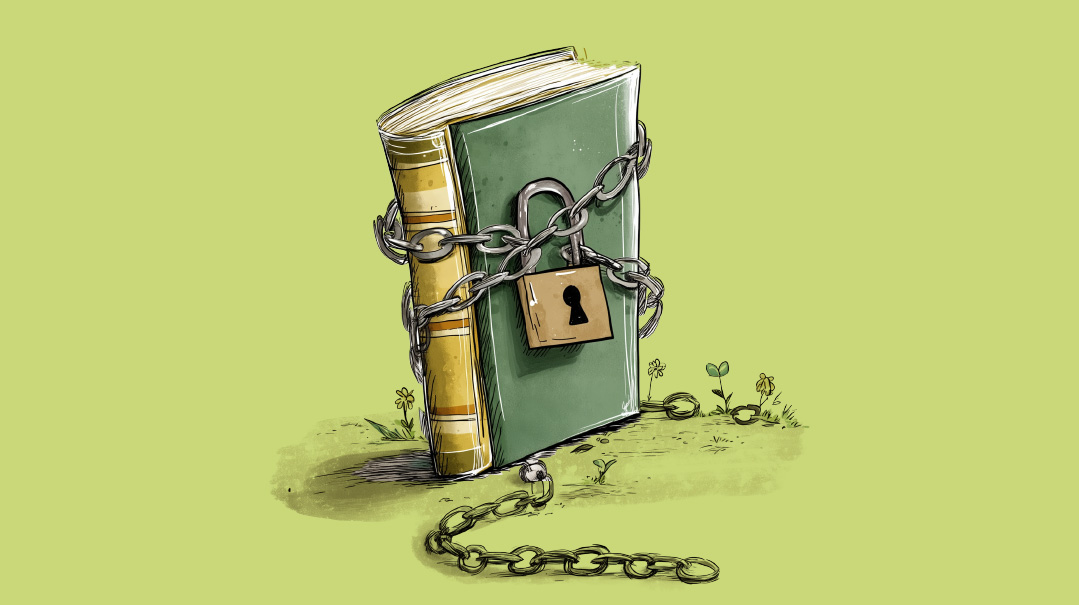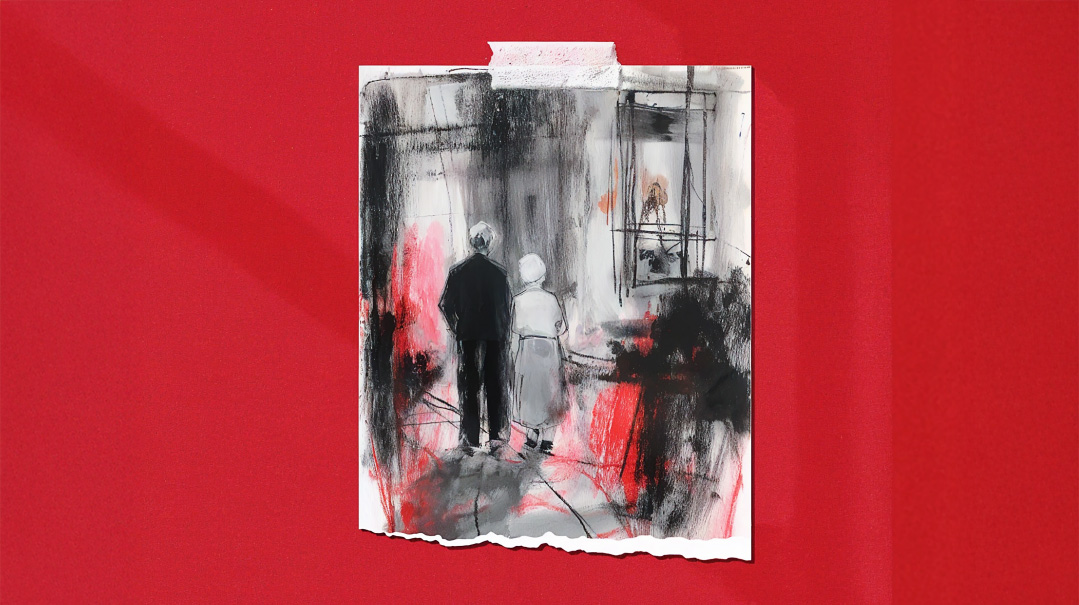Family First Inbox: Issue 821

“I need to find ways to be okay with the way I look and feel right now. Relegating happiness to the end of the process only breeds despair”

Fundraising Events Are Out of Control [The Conversation Continues /Issue 820]
This may be an unpopular opinion, but I feel like one of the drivers of the gashmiyus obsession Elisheva Appel criticizes is the events run by many of our mosdos. There’s a jaw-dropping amount of unnecessary luxury at a “standard” dinner. While they do have a responsibility to their mosad to raise a lot of money, they help drive this feeling that luxury is the standard.
If someone makes the argument that “people make fancy simchahs, why aren’t they to blame?” the answer I have is that we emulate our leaders, and what they do influences our actions.
I’m asking all frum institutions, tzedakah organizations, and schools to start scaling back. Inflation is hitting everyone hard, so please use this as an opportunity to cut back on the gashmiyus. If someone wants to see a conveyor belt of sushi, let them get one for their own simchah. Don’t be responsible for raising the bar.
R.T.
Ali and Shein Aren’t the Culprits [The Conversation Continues /Issue 820]
For Elisheva Appel to point an accusatory finger at the companies of Ali and Shein for raising the standard of materialism in our community is senseless. They’re providing a great service to families who are looking to buy apparel, jewelry, and gift items for a fraction of the cost. Earrings for granddaughters, new Yom Tov dresses are available if you don’t mind waiting through the delivery process.
Gemachim are a tremendous chesed for dresses, tablecloths, centerpieces and many other simchah needs. Hurray for those who are the givers and recipients of these services.
Are these services and companies upping the scale of materialism and raising the “Gold Standard” of our kehillos? I unabashedly say, “No, No.”
Communal standards are fictional; we’re the individuals who set our own standards. Rabbi Kramer shlita of Prospect Park High School would remind parents that when your daughter says, “Everyone is doing…," be aware that it could be one friend or maybe two.
Throughout the years, families in klei kodesh (we belonged to that group for many decades) shopped at Target, bought Shabbos and simchah dresses/suits at Sears and Burlington, and vacationed at Motel 6 or Super 8. Today a percentage of those children are successful in business and some decided klei kodesh was not their fancy.
Instill self-confidence in your children, develop a self-identity, and ignore the masses if they’re not in line with your inner voice. Our possessions don’t define us and don’t define others. Mothers and Fathers, you can and should model and project the beauty and worthiness of Yiddishkeit without attaching a price tag to the event.
And those who go overboard with spending, perhaps there’s a reason for it. We surely aren’t privy to each and every case. Let’s raise the Gold Standard of kindness, chesed, and friendliness.
Mrs. Caren V. May
The Pain Never Goes Away [Happy Birthday/Issue 819]
Thank you for publishing “Happy Birthday,” by the daughter of a narcissistic mother. Not a day goes by that I don’t feel the effects of having been born to a mother who didn’t want me, didn’t like me, and couldn’t show love to me. Even though I’m in my eighties, the pain never goes away. After all, it’s normal to think, If my own mother couldn’t love me, how can I love myself? How can anyone ever love me?
I’ve devoted my life to trying to giving my students and children the love I never got. However, no one should ever think that this trauma can be “erased” or undone completely. Sadly, most unloved children go on to marry people who repeat the same “not good enough” messages they heard in childhood, or repeat that message obsessively in their own minds. An actual orphan can imagine that, had their parent lived, he or she would have showered the child with love. That’s a comforting thought. But emotional orphans are always faced with reminders of rejection and abandonment from the many narcissists they encounter among coworkers, family members, or even strangers.
Anonymous
Health, Not Size [Give It a Shot/Issue 819]
My heart goes out to the lady who wrote “The Person I Wish I Could Be” as a sidebar in the article on weight-loss shots. So much of what she said reflects my own experience — fear of collapsing folding chairs, being the biggest person in the room, and repeated dieting with little to show for it. I can understand why she would want to try the drug, though I personally choose not to.
I want to make several points. First, if any weight-loss medication or procedure comes with “lifestyle changes” including adjusting food intake, increasing physical activity, and regular accountability, then if one makes the “lifestyle changes,” even without the drugs or procedures, one is already ahead of the game with regard to health, and even if one’s weight/size doesn’t seem to change.
Second, the “Health at Every Size” approach is described as “not support[ing] weight loss through dieting and restriction.” I don’t understand how one can be healthy without some form of restriction of food intake. Extreme restriction is unhealthy and counterproductive, of course, but I did need to learn to restrict myself to one piece of cake for dessert instead of two or three. Or, if I really, really wanted those extra pieces, I needed to give up something else in exchange. Meal planning with caloric content in mind helped me become conscious of which of the foods I enjoy are most satisfying and give me the best nutritional bang for my calorie buck. I use a phone app to help with that.
Third, time will always be a factor in a journey to health. Habits take time to change, and according to my nutritionist, a loss of one to two pounds per week is the maximum that’s sustainable. I needed to learn to be patient and compassionate with myself and recognize that since it’s going to be a long haul, I need to find ways to be okay with the way I look and feel right now. Relegating happiness to the end of the process only breeds despair.
Being large — even without comorbidities, baruch Hashem — is no fun, and I wish everyone who is traveling the road to health with me success in whatever approach works best for them.
E.G. Edelson
Debilitating Side Effects [Give It a Shot/Issue 819]
I read the article about weight loss injections and wanted to express my concern that not enough information was provided to give your readers adequate information about this shot. I’d like to share my experience.
I live in Europe, and it’s very easy to get a hold of Ozempic online, and it’s relatively inexpensive, especially as compared to in the US. All I needed to do was fill out an online questionnaire about my health, height, and weight, and they sent me a one-month supply.
I want to make readers aware that there can be severe side effects. I started off with headaches, a bad taste in my mouth, diarrhea, and loss of appetite. I was constantly burping, which brought up the taste and smell of rotten eggs.
The injection is meant for people who have diabetes, so it lowers your blood sugar, but if you don’t have issues with your blood sugar, you’ll feel shaky, lightheaded, and dizzy. I thought I would get used to it after the first week, but I didn’t. I did lose a few pounds, but I felt horrible. I didn’t reorder it, and gained back whatever weight I’d lost.
Please take this into account before deciding to take this injection for weight loss. Also, remember that when you stop taking it, you’ll put the weight back on.
R. S.
Supporting the SAHM [Inbox/Issue 819]
When I got married, I worked to support my husband in learning. Five years into our marriage, our financial situation changed, and I no longer needed to work. I was expecting our second child and decided to try my hand at being a stay-at-home mother.
I was in for an identity crisis.
Now, several years and lots of soul-searching later, I found a way to make being a stay-at-home mother work for me because that was what I found meaningful. One thing that really helped was buying courses (in parenting, marriage, self-development and higher-level Torah learning courses, many of which are available out there) for myself, for my intellectual stimulation. I used to feel guilty because of the hundreds of dollars I was spending on this, but this made a huge difference for me and my ability to stay home.
One hurdle that was very difficult to overcome was the lack of social life, especially in the winter. Because working has become the norm for frum women, there’s very little communal support offered to stay-at-home mothers, which is something that must change if we want more women to make the leap. Learning groups for stay-at-home mothers can be a life saver (where you can take your baby with you!), especially if several mothers take a course together and meet up to discuss it. I also found that having a hobby helps, and perhaps creating such groups (like painting, exercise, writing groups) can be an amazing outlet for women who want to stay home.
Also, the way stay-at-home mothers are viewed must change. People were shocked to find out I have cleaning help and have a hard time making gourmet suppers just like my working counterparts do, because, yes, nurturing a baby and toddler is doing something, after all. (And who wants to fold laundry with a baby crying and pulling on your skirt? That’s not why I’m staying home!)The reality is, even in frum society, women who are staying home get very little support and recognition.
I’m writing this to bring awareness to the issue. Anyone who has the means to create (social, emotional, and physical) support for women who want to stay home, there’s definitely a need for this. Many women I know who tried staying home became depressed!
Name Withheld
Normal Is Overrated [Words Unspoken/Issue 818]
To A Normal Single Girl,
I’ve been reading the Inbox letters in response to your Words Unspoken column, and I want to add a couple of insights. Whether or not the shadchan is at fault here is debatable, but YOU definitely don’t need to limit yourself, your thoughts, feelings, self-worth, and expectations to one shadchan’s not-so-welcoming demeanor.
It may serve as chizuk for you to hear that not so long ago, I was a “normal” single 21-year-old from a “normal” family with no health issues, and I married a wonderful bochur who has a hidden medical diagnosis. He was right for me in many ways, and I thank Hashem each day that I wasn’t short-sighted enough to say no because of his health issues.
Hashem arranges shidduchim, and there may very well be a normal single boy waiting around the bend for you. If you’ll tell me it’s a boys’ market, I’ll respond with another example, a couple I know well, where a “normal” boy married a wonderful young lady who was seriously sick as a child. Hashem knows what’s best for you, and no shadchan can convince Him otherwise.
That being said, you most definitely deserve to be treated with respect and dignity.
Let me add one more thing; perhaps “normal” is overrated in this conversation. I imagine you are a stronger, more resilient, more thankful person because of your medical diagnosis. Don’t you want to marry someone who shares your depth and qualities (either with or without a medical issue)? I, for one, am grateful that I didn’t marry someone “normal.” There are many people out there with different challenges, many of them hidden from the onlooker. Look for someone suited to you, your personality, and your values, and let’s stop focusing on the cliché “normal” résumé which doesn’t guarantee a baal middos tovos or a successful marriage.
Hoping you find your zivug very soon,
Another Normal Girl
Shadchanim Get Ghosted, Too [Close to Home/Issue 817]
I’m not one to welcome with interest “real estate” talk around my table, so I was delightfully surprised to see how much I enjoy Nicky Norman’s Close to Home column. Her charming anecdotes, insights into human nature, and practical suggestions for menschlichkeit and kiddush Hashem are presented with flair and flavor. (Thank you, Batsheva Berman, for presenting it to us masterfully.)
I found it particularly compelling to read Chapter 19’s explanation of “ghosting,” (abruptly ending communication with someone without explanation), a term I wasn’t familiar with, but a concept I’m very familiar with. A dabbler in redting shidduchim, I see many parallels with that and trying to match up seller, buyer, and home. And yes, I have much experience with being “ghosted.” I hope people will stop “ghosting” real estate agents after reading that installment. May I take this awareness a step further and beg that they no longer “ghost” shadchanim. I can’t speak for professional ones — I assume they’re thick-skinned and it doesn’t hurt them — but us amateurs trying to do our share to help singles are very hurt in the process when we’re ghosted. We’re dan l’chaf zechus all the time, but hurting nevertheless.
Calling us back to tell us that our suggestion is not for you shows hakaras hatov and opens a door for us to call you again if we have a new suggestion. If you’re the one hurting and upset with our suggestion and don’t care if we never call you again, then please go beyond your comfort level and make us feel appreciated so we can muster up our courage to call a different single when an idea strikes us. (Nicky advises her clients, “Tell me why you’re upset with me,” and we amateur shadchan feel the same.) Ghosting shuts down our energy to try again. Calling the shadchan back may force you to pay the price of being asked uncomfortable questions or getting pressure (I can speak for myself; I don’t do that), but please look at it this way: Getting back to the shadchan is doing your share to help people redt more shidduchim. And the profit margin of sechar you will get for that is immeasurable.
An Amateur Shadchan Who Feels She Might Hurt People If She Signs Her Name
(Originally featured in Family First, Issue 821)
Oops! We could not locate your form.







